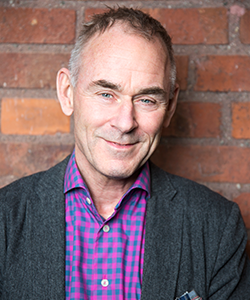Citizens' Assembly on Climate presents its results

Sweden's first Citizens' Assembly on Climate, initiated by Fairtrans, a multidisciplinary research programme funded by Mistra, has completed its work. Sverker Sörlin, Professor of Environmental History at KTH Royal Institute of Technology, has mentored the process.
"It has been a stimulating and instructive work for everyone, not least for me. I am impressed by the Assembly's perseverance, energy and creativity," Sverker Sörlin says.
To enrich and nuance the public political debate on climate issues, the Assembly's members met during the spring of 2024. Council members voted individually on some twenty main proposals and many subordinate proposals. The results are now available on the Fairtrans website .
The majority want to see a clear transition
The outcome, according to Sörlin, clearly shows three things:
- Firstly, an overwhelming majority want to see a clear transition and stand behind measures that allow Sweden to reach its climate goals and contribute its share to fulfilling the Paris Agreement. All proposals are above 50% support, and the overwhelming majority is up to 80% or, in several cases, around 90%.

- Sörlin's second observation—as the Assembly's members represent a cross-section of the population—is that politicians, parties, and other societal actors are strongly mandated to be more proactive in taking action, even uncomfortable action, to reach the climate goals.
- The word climate justice summarises his third observation. By far, the most extensive support has gone to areas strongly linked to equity. Public transport, essential for people with limited resources, has received strong support. So has investment in infrastructure, particularly rail. The Assembly wants cheap, easy, accessible and efficient public transport and a railway that works with trains that run on time according to schedule. It also wants to see investment in community planning for climate and the environment and raise the status of natural areas, which one can interpret as wanting to benefit those who cannot afford to travel far away for their nature experiences.
“The Citizens' Assembly is seen as a way back to the roots of democracy—a community of deliberative citizens who think both for themselves and together and do so responsibly. Participants in this form of direct democracy cannot be anonymous. They sit in the same room and talk to each other. In our time, this is increasingly seen as an asset and assurance of the legitimacy of the political process”, Sörlin adds.
